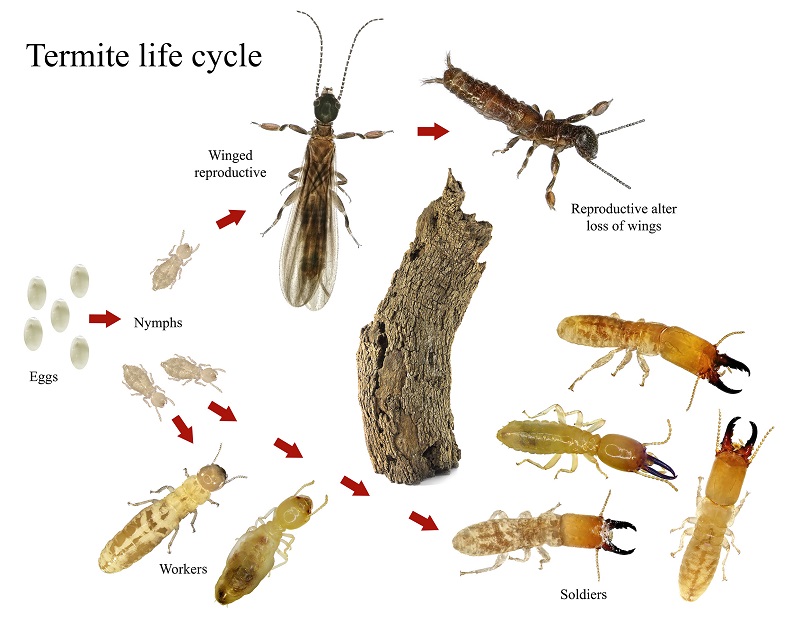Why Pick Our Termite Control Services: Specialist Solutions for Effective Defense
Why Pick Our Termite Control Services: Specialist Solutions for Effective Defense
Blog Article
Ecological Impact of Pest Control: Balancing Performance With Sustainability
The environmental influence of parasite control is a crucial problem that calls for a delicate balance in between attaining effectiveness in ensuring and managing insects sustainability of our ecological communities. From the use of unsafe chemicals that seep into our dirt and water to the unintended consequences on non-target varieties, the repercussions of conventional pest control practices are significant.
Unsafe Chemicals in Bug Control
The application of damaging chemicals in bug control presents considerable ecological and wellness threats that necessitate mindful factor to consider and reduction strategies. Insecticides, herbicides, and pesticides are generally made use of to eradicate pests, yet their widespread application can lead to unintended effects. These chemicals can pollute soil, water resources, and the air, impacting not just the targeted parasites however additionally useful pests, wildlife, and humans.

To deal with these threats, incorporated pest administration (IPM) techniques are being advertised as a more sustainable alternative. IPM entails a combination of techniques such as biological control, environment control, and the targeted use of pesticides as a last resort (ant control bessemer city nc). By taking on an alternative approach to pest control, we can lessen the ecological and health and wellness impacts linked with hazardous chemicals while properly handling pest populaces
Influence On Non-Target Species
Taking into consideration the unexpected repercussions of insect control methods, the effect on non-target species is a vital aspect that calls for complete assessment. While pest control measures intend to target details parasites, other organisms in the community might be unintentionally influenced. Non-target species, consisting of useful bugs, birds, animals, and also plants, can experience straight or indirect damage from chemical applications or biological control techniques.
Pesticides designed to deal with a certain insect pest might damage pollinators like bees or natural predators such as ladybugs. Biological control representatives, if not species-specific, can posture threats to unintended targets, interrupting the environmental balance.
To alleviate the impact on non-target species, integrated pest management (IPM) techniques that highlight an alternative method to pest control are suggested. These methods prioritize making use of eco friendly methods, reducing harm to helpful microorganisms while successfully managing pest populations. Conducting thorough threat analyses and monitoring the end results of insect control efforts are important action in safeguarding non-target varieties and promoting overall ecosystem health and wellness.
Dirt and Water Contamination
Unplanned ecological effects of parasite control approaches prolong past affecting non-target species, with significant implications for soil and water contamination. Chemicals, herbicides, and chemical fertilizers made use of in insect control can leach right into the dirt and pollute groundwater, posing a hazard to both earthbound and aquatic ecological communities. Soil contamination can interfere with the balance of microbes crucial for nutrition cycling and plant growth, leading to lowered soil fertility and performance. These chemicals can persist in the atmosphere for extensive periods, collecting in the dirt and potentially getting in the food chain.
Water contamination is one more crucial issue linked with parasite control techniques. To alleviate soil and water contamination from insect control tasks, integrated insect administration strategies that focus on sustainability and minimize chemical inputs are crucial.
Air Contamination From Pesticide Usage
Direct exposure to airborne pesticides throughout agricultural applications positions a considerable issue for air contamination control measures. Furthermore, pesticide drift, where chemicals are lugged by the wind to unintended areas, can lead to the contamination of close-by ecosystems and water bodies.

Techniques for Sustainable Insect Control
In the world of farming methods, applying sustainable insect control techniques is vital for keeping environmental equilibrium and protecting plant yields. Sustainable pest control stresses making use of eco-friendly methods to manage insect populaces efficiently while lessening damage to non-target microorganisms and ecosystems. Integrated Parasite Monitoring (IPM) is a commonly embraced strategy that incorporates biological, social, physical, and chemical control approaches to accomplish long-lasting bug management solutions.
One trick approach in sustainable bug control is advertising biodiversity within agroecosystems. By enhancing natural enemies of parasites, such as parasitoids and predators, farmers can reduce the requirement for artificial pesticides. Crop turning and diversity are also efficient strategies to interfere with pest life process and produce less positive problems for parasites to flourish. In addition, utilizing pest-resistant crop varieties and employing methods like trap chopping can help in reducing insect pressure without depending greatly on chemical treatments. Eventually, by integrating these sustainable bug control methods, farmers can attain a balance between pest management efficiency and environmental stewardship.
Verdict
Finally, the environmental effect of pest control approaches have to be very carefully taken into consideration to stabilize performance with sustainability. Unsafe chemicals utilized in insect control can bring about dirt and water contamination, air pollution, and damage non-target investigate this site varieties - ant control services. It is crucial to carry out lasting insect control strategies to decrease these unfavorable impacts on the environment and advertise a much healthier ecosystem for future generations
By taking on an alternative method to pest control, we can lessen the environmental and health influences associated with hazardous chemicals while effectively taking care of pest populaces.

To reduce the air contamination triggered by chemical usage, it is crucial to embrace integrated bug monitoring methods that prioritize the usage of non-chemical bug control techniques, such as plant rotation, all-natural killers, and resistant crop selections. Lasting pest control stresses the usage of ecologically friendly techniques to take care of insect populations properly while lessening damage to non-target microorganisms and ecosystems. Integrated Insect Administration (IPM) is an extensively taken on method that integrates biological, social, physical, and chemical control methods to accomplish long-term bug management remedies.
Report this page